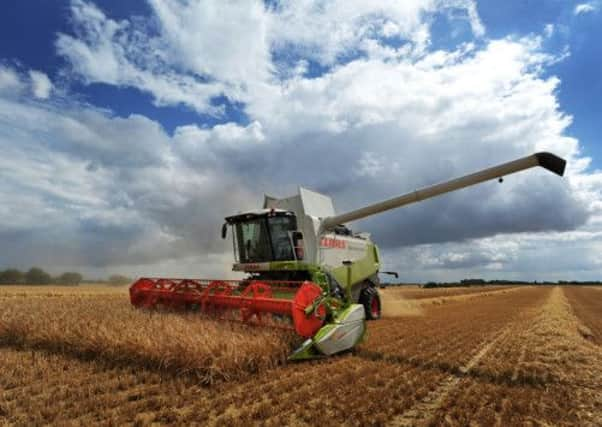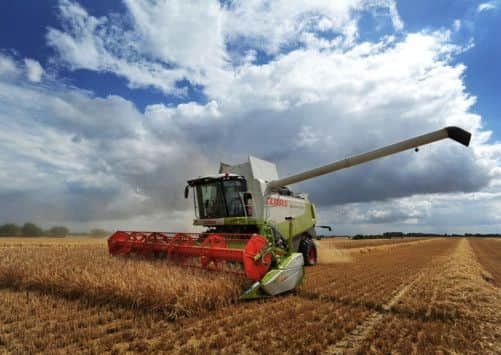Video: Yorkshire farmer takes grain check on record


But farmer John Porter could be looking at a world record barley yield on his farm in Holderness, East Yorkshire.
With just under nine hectares safely brought in yesterday, a series of calculations has to be made before determining whether he has snatched the Guinness World Record title from Scottish grower Stockton Park, who have held it since 1989.
Advertisement
Hide AdAdvertisement
Hide AdEarly indications suggested a yield of 108.6 tonnes from 22 acres, equalling the world record.


But more calculations have to be done to confirm the acreage and the tonnage.
“It is very, very close,” he said. “I wouldn’t like to get my hopes up – it is so close, it could go either way.”
Two international rivals from France and Poland have already failed to surpass the record set at 12.2 tonnes per hectare.
Advertisement
Hide AdAdvertisement
Hide AdDespite drawing up plans with a precision that wouldn’t have disgraced a military operation, using an array of sophisticated machinery and the latest fungicide technology, it all came down to the weather in the end, he says.
And that couldn’t have been worse when it came to planting the crop last September.
“It was one of the worst autumns we have ever had for the conditions for sowing the crop, and very difficult to get it into the ground,” recalled Mr Porter.
“Then that was followed by a very long cold spring, which meant the crop got one of the worst starts you can imagine.
Advertisement
Hide AdAdvertisement
Hide Ad“If you had asked me in April could we break the world record I’d have said absolutely no chance, but then (things looked up) with the sunshine on this land which copes with drought conditions very well.
“We are on boulder clay here, left by the glaciers, and if you can get the roots down it holds the moisture very well.
“The rain we had in May has kept it going and because barley matures earlier it hasn’t suffered so much with the drought. The sunshine has been the driving force.”
Mr Porter who farms as FA Porter & Sons with two cousins, said his late father, who died in 2000, would have been astonished by the scientific and technological developments in farming.
Advertisement
Hide AdAdvertisement
Hide Ad“We try to do everything that we can to give the crop the maximum chance of yielding the best crop possible – then we are in the hands of the weather after that,” he said.
Two adjudicators and a representative from the Guinness Book of Records and representatives from seed firm Syngenta were on standby yesterday as Mr Porter harvested the crop, which was then driven to a local weigh station.
Sitting in the cab of his £300,000 combine harvester he did not even have to have his hands on the wheel as the machine is guided by laser down the edge of the crop.
The field – part is low-lying land with blue clay “better for making cups and saucers” than growing cereals – which is mapped using a global positioning satellite so that the areas of fertile and poorer quality soils can be given the right nutrient treatment.
Advertisement
Hide AdAdvertisement
Hide AdAn sensor is used to measure the greenness of the crop and adjust the amount of nitrogen added.
Disease control included a four-spray fungicide programme, while the seed is produced by crossing genetically dissimilar barley parent plants together.
Chris Hostick, from Syngenta, which breeds the Hyvido hybrid barley sown by Mr Porter, said they were on “tenterhooks”.
“If we haven’t made it we are exceedingly close and given the weather we’ve had that’s remarkable,” he said.
Advertisement
Hide AdAdvertisement
Hide Ad“It is not going to be a record harvest for the UK this year. What we call the bushel weight has been very good, at between 65 and 69.”
The NFU has just launched its 2013 harvest survey and from Thursday farmers can go to nfuonline.com.
Laurie Norris, crops adviser for NFU Yorkshire said: “This year we are particularly interested in wheat and oil seed rape yields.
“We are looking at the effect of extreme weather on the crops and the potential increased planting of spring crops.”